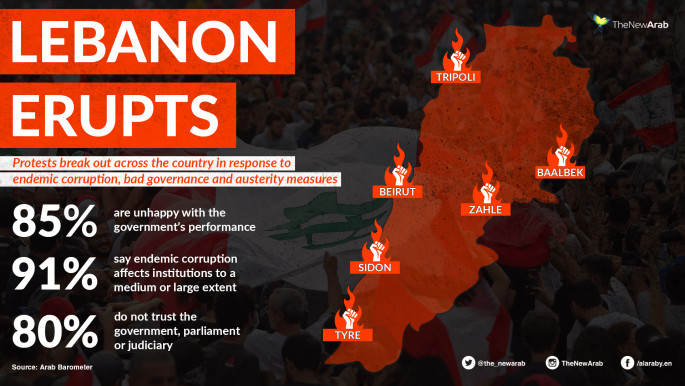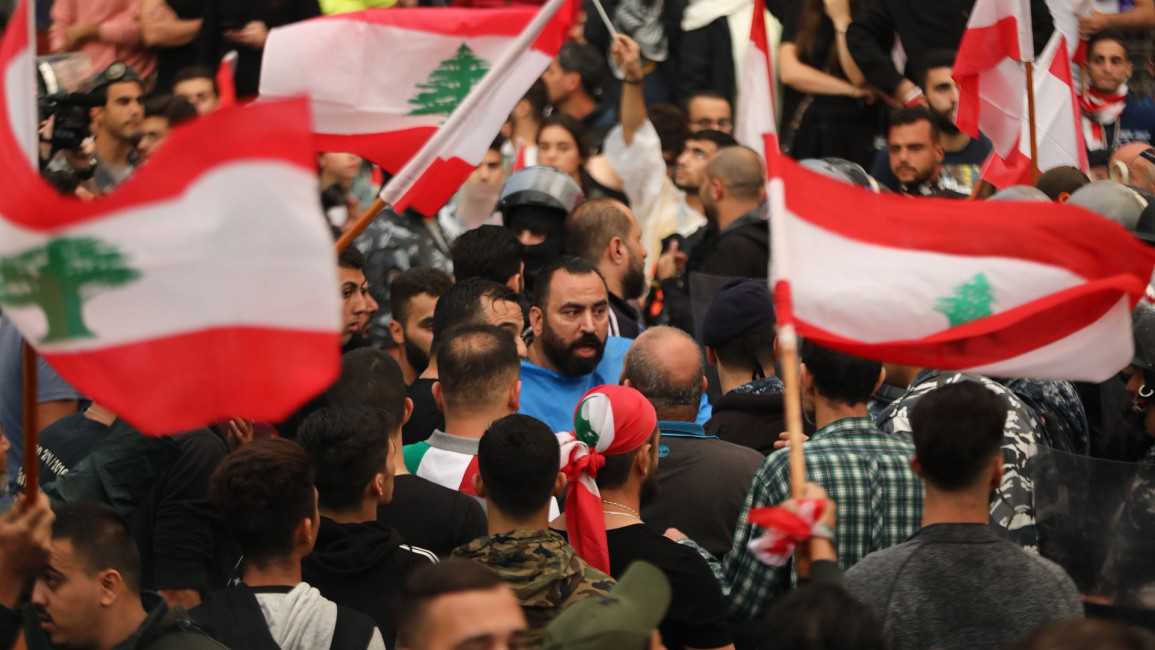Several injured as Hezbollah supporters clash with anti-government protesters in Beirut
Six people were taken to hospital following the clashes, the Lebanese Red Cross said on Thursday.
The demonstrations insist that the entire political class must step down, but supporters of Hezbollah leader Hassan Nasrallah instead chanted: "All of them means all of them, and Nasrallah is more honourable than them," The Daily Star reported.
Also read: UK says Lebanon's anti-corruption protesters have 'legitimate frustrations'
Most of the members of the group were dressed identically in black and carried brand new flags.
Some protesters, mostly women, tried to form a line as tensions mounted between the opposing groups but riot police eventually had to intervene to curb the clashes.
Since the first day of the uprising, chants of "All of them means all of them, and Nasrallah is one of them," have been heard at protests in Beirut.
Twitter Post
|
'As responsible as anyone else'
"Nasrallah is the head of a big political party, so he's as responsible as anyone else. Of course he's one of them," 24-year-old Udai, an unemployed engineering graduate, told The Daily Star.
"He's like [Amal Movement leader Nabih] Berri or [Lebanese Forces head Samir] Geagea," said Andy, a 19-year-old student. "These people here are trying to prevent us speaking about him. Nasrallah's followers are intensely loyal to him, but still many of us are speaking about it openly."
Hezbollah supporters disagreed, even if they conceded that some criticism of the group was valid. "We are against all thieves and criminals, but the Sayyed [Nasrallah] is not one of them. We even hold the Resistance [Hezbollah] accountable," Hasan, an unemployed 21-year-old told The Daily Star.
"Nasrallah has given his child for the cause, he has given everything for this land."
Despite their differences, the aim of the protesters generally remains the same.
"We are all one, there is no line between us," said Wael Ajouz, an unemployed 23-year-old. He said that both sides agreed on most issues the protests were against – returning looted money, holding politicians accountable and seeing the fall of the government.
An ailing economy
Lebanon is one of the world's most indebted countries, with a deficit of around $86 billion - more than 150 percent of gross domestic product - according to the finance ministry.
Public anger surged after parliament passed an austerity budget in July as part of efforts to make reforms that are essential if Lebanon is to unlock over $11 billion in economic assistance pledged by international donors last year.
Growth has plummeted in recent years, with political deadlock compounded by the impact of eight years of war in neighbouring Syria.
 |
|
| [click to enlarge] |
Follow us on Twitter: @The_NewArab



